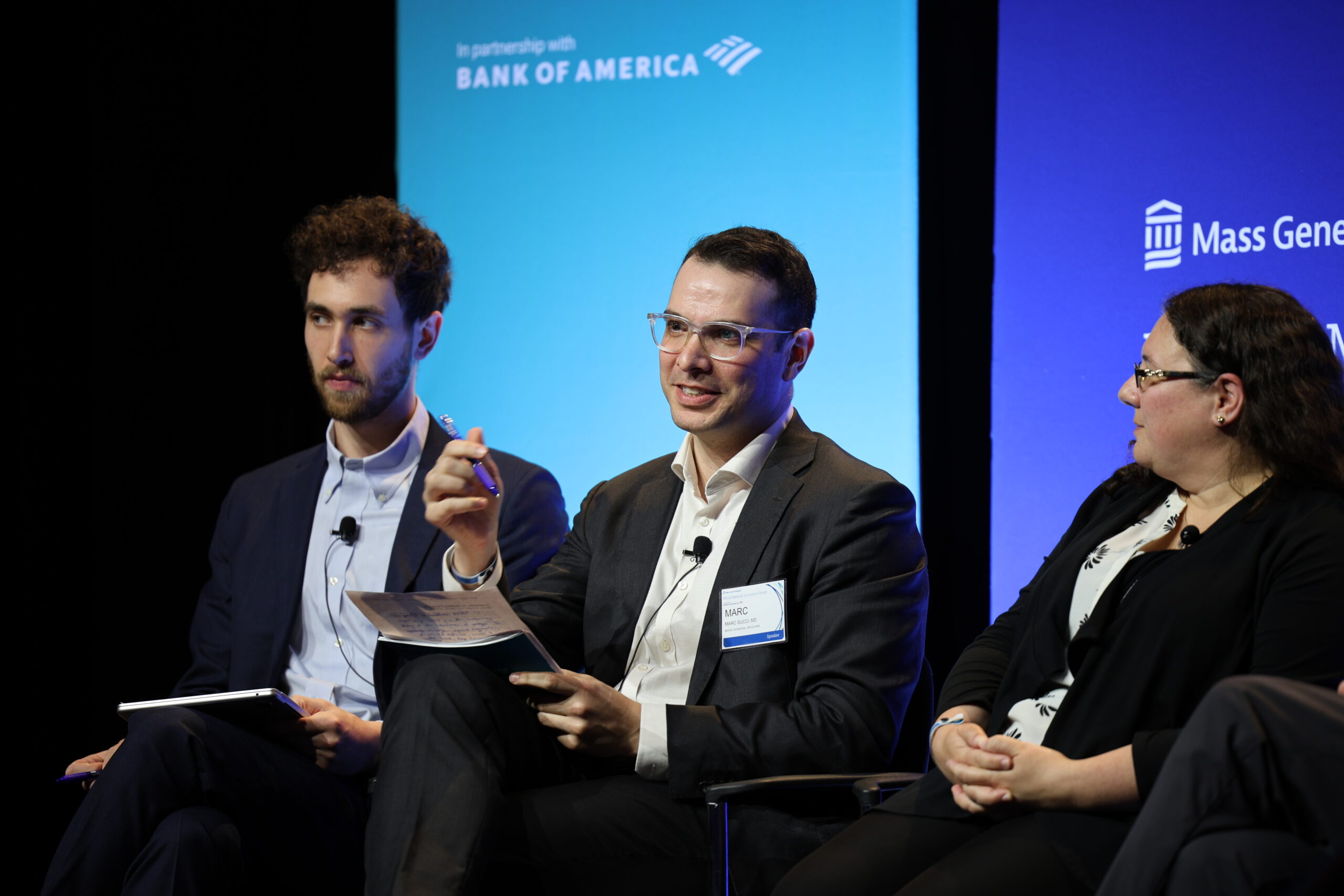WMIF MAIN SITE
2025 Event Site
From improving diagnostic tools to optimizing clinical workflows, AI is poised to redefine the future of medicine. As the technology advances, so do the challenges—ranging from ethical dilemmas to privacy concerns and regulatory hurdles. At the 2024 World Medical Innovation Forum, leading experts explored the immense opportunities and significant complexities AI introduces to the healthcare landscape.
The Transformative Power of Generative AI
Generative AI is already revolutionizing healthcare by enhancing patient experiences and optimizing clinician workflows. Speakers at the Forum highlighted its potential in diagnostics, patient engagement, and drug development, with AI tools like ChatGPT enabling more personalized care.
The Generative AI: Breakthrough Research and Limitations panel focused on innovations such as Path Chat, a diagnostic tool that leverages AI to streamline medical imaging and support clinical decision-making. AI’s potential in drug development and patient engagement was also emphasized, with panelists noting that collaboration between tech companies and healthcare organizations is essential for creating transparent, accountable, and equitable AI systems that fully realize the technology’s promise.
Watch: Medicine’s Hottest Topics | Generative AI: Breakthrough Research and Limitations
Marc Succi, MD, Executive Director of the Mass General Brigham MESH Incubator, discussed the broader implications of AI in healthcare, emphasizing the technology’s potential to reduce physician burnout and improve diagnostic accuracy, ultimately raising the quality of care. However, Succi also stressed the need for human oversight to mitigate risks such as bias and privacy concerns. His full interview provides further exploration of these critical topics.
Watch: WMIF 2024 | Interview | Marc Succi, MD
Ethical and Privacy Challenges: Navigating Responsible Implementation
The growing integration of AI into healthcare systems also brings ethical and privacy challenges that cannot be overlooked. The Generative AI Enabled Care Paths panel, moderated by Adam Ron, Healthcare Facilities and Managed Care Analyst at BofA Global Research, and Succi, discussed how healthcare organizations must navigate these concerns as they adopt AI technology. Experts from UC San Diego Health, Mass General Brigham, and Abridge shared their perspectives on balancing innovation with patient privacy, equity, and accountability in clinical settings.
The discussion stressed the importance of ethical standards and privacy safeguards, noting that while the benefits of AI are clear, the technology must be implemented with caution. Panelists also highlighted the need for collaboration between tech companies and healthcare organizations to create transparent, accountable, and equitable AI systems.
Watch: Medicine’s Hottest Topics | Generative AI Enabled Care Paths
Looking Ahead: The Future of Generative AI in Healthcare
Generative AI is positioned to be one of the most influential technologies in healthcare in the years to come. As the healthcare sector continues to embrace AI, the 2025 World Medical Innovation Forum will explore its evolving role in shaping the future of medicine.